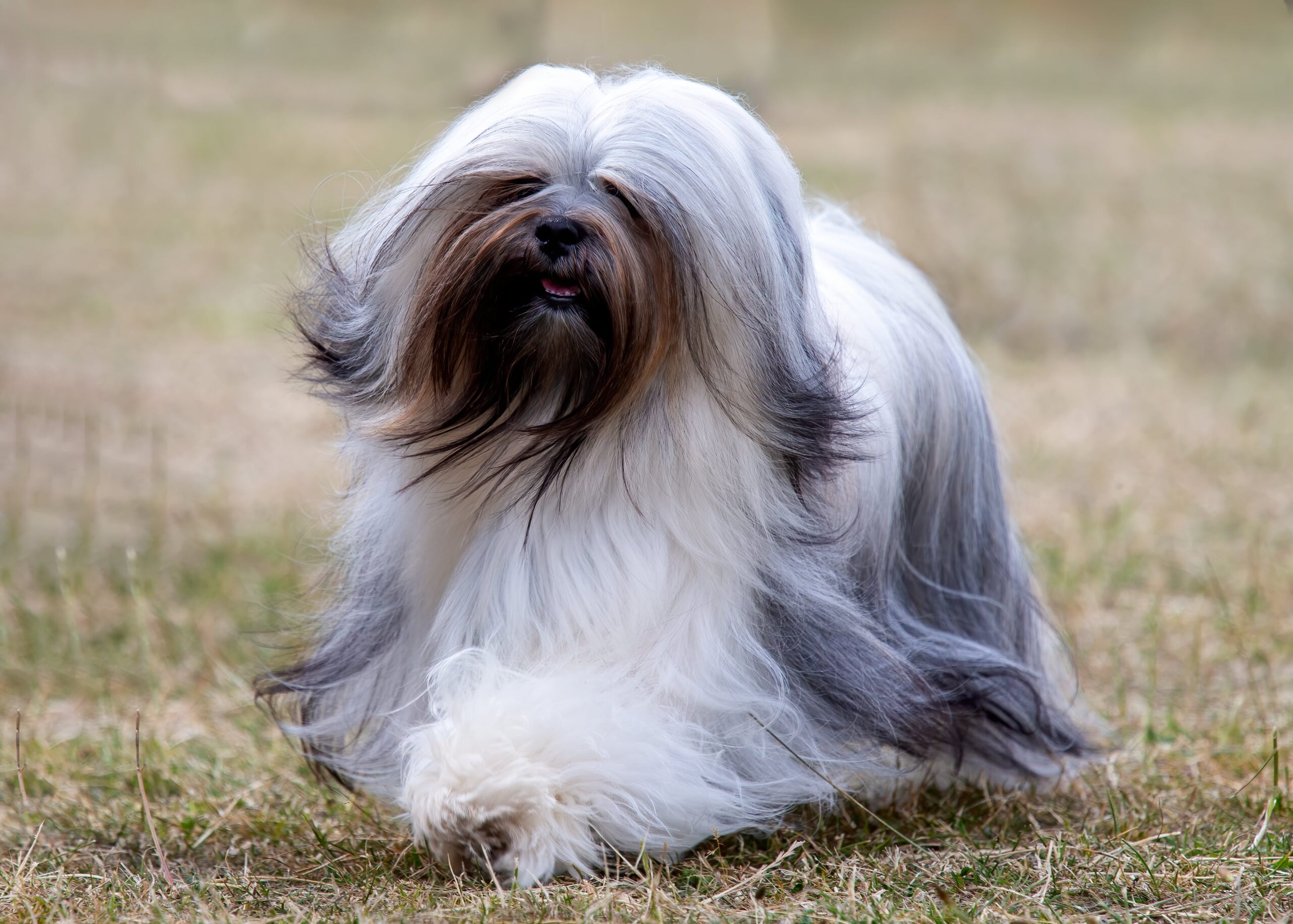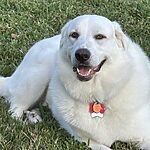Welcome to our guide on the importance of skin and coat health in pets, which are key indicators of their overall well-being. Beyond just grooming, a shiny coat and healthy skin are reflections of your pet’s nutritional health and general wellness. In the realm of pet care, the appearance of an animal’s skin and coat can often be the first sign of their dietary needs and health concerns. As responsible pet owners, prioritizing pet nutrition and regular grooming is crucial not only for their appearance but also for their internal health. Join us as we delve into the vital link between a lustrous coat, robust skin, and overall health, and learn the essential pet care tips to maintain your pet’s optimal condition.
Understanding Skin and Coat Health
A deeper understanding of your pet’s skin and coat health begins with an insight into their structure and function. The skin of a pet, a crucial part of animal dermatology, is the largest organ and serves as the first line of defense against environmental elements. It is not just a barrier, but also a complex system that supports overall health. A healthy pet coat, on the other hand, is more than just aesthetically pleasing fur. It plays a vital role in temperature regulation and offers protection against sunlight and other external factors. The characteristics of a healthy coat include a smooth, shiny texture and minimal shedding, while healthy skin is supple and free from excessive dryness or oiliness. Indicators of a healthy pet skin and coat include elasticity, hydration, and a lack of irritation or redness. Understanding these signs of health helps pet owners in recognizing the early signs of potential issues and underscores the importance of regular care and attention to their pet’s dermatological needs.
Indicators of Health Problems
A pet’s skin and coat are often the first indicators of their overall health, acting as a window to underlying conditions. As a pet owner, it is crucial to be vigilant about any changes in your pet’s skin and coat, as they can provide early signs of health issues. Here are some key changes to watch out for, which may signal the need for further investigation or veterinary attention:
- Dull Coat: May signal nutritional deficiencies or internal health problems.
- Excessive Shedding: Could indicate stress, allergies, or hormonal imbalances.
- Flakiness: Often points to dietary insufficiencies or skin infections.
- Oily Skin: Can be a sign of metabolic issues or the presence of external parasites.
- Unusual Hair Loss: A key clue that could suggest underlying health conditions.
- Changes in Skin Texture: May reveal issues such as allergies or infections.
- Appearance of Spots and Sores: Important to note, as they can indicate more serious health problems.
Promptly addressing these signs can prevent more serious complications and maintain your pet’s overall health.
Common Skin and Coat Health Issues and Solutions
Several common problems can affect a pet’s skin and coat health. Understanding what to look out for and knowing the appropriate actions to take are key in managing these issues effectively:
- Allergies:
- Symptoms: Itching, redness, inflammation, excessive scratching, hair loss, skin lesions.
- Actions: Consult a vet for allergy testing and appropriate treatments. Regular baths with hypoallergenic shampoo can help.
- Parasites (like fleas and ticks):
- Symptoms: Irritation, allergic reactions, infections, excessive grooming, patchy hair loss.
- Actions: Use vet-recommended flea and tick preventatives. Keep your pet’s environment clean.
- Nutritional Deficiencies:
- Symptoms: Dull, brittle coat, flaky skin, hair thinning, bald spots.
- Actions: Review your pet’s diet with a vet. Consider a balanced diet and supplements like omega fatty acids.
- Hormonal Imbalances:
- Symptoms: Symmetrical hair loss, changes in skin thickness, greasy coat, skin tags.
- Actions: Veterinary consultation for proper diagnosis. Treatment may involve hormonal therapy or dietary adjustments.
- Dermatitis in Dogs:
- Symptoms: Inflamed, itchy skin, redness or irritation, scratching, licking, hair loss, scabs, sores.
- Causes: Can vary from allergies, infections, to stress.
- Actions: Consult a vet for a diagnosis and treatment plan. Soothing shampoos and prescribed medications may be recommended.
Addressing these issues promptly can greatly improve your pet’s skin and coat health and overall well-being.
The Role of Nutrition in Skin and Coat Health
The health of your pet’s skin and coat is significantly influenced by their diet. A balanced and nutrient-rich diet is vital for maintaining their skin and coat health:
- Balanced Diet Importance:
- Key Point: A well-balanced mix of nutrients is crucial for overall pet health, affecting skin hydration and coat luster.
- Action: Ensure your pet’s diet encompasses a variety of nutrients to support their skin and coat health.
- Beneficial Nutrients:
- Omega Fatty Acids:
- Benefit: Essential for healthy skin and a shiny coat. Omega-3 and Omega-6 fatty acids are especially important for reducing skin inflammation and enhancing coat health.
- Sources: Fish oil, flaxseed oil, and certain specialized pet foods.
- Note: The role of omega fatty acids will be discussed in more detail later in this blog, particularly focusing on Essential OMEGAS.
- Vitamins:
- Benefit: Vitamins A, E, and B-complex are crucial for skin repair, coat strength, and maintaining skin health.
- Sources: Leafy greens, carrots, eggs, and fortified pet foods.
- Proteins:
- Benefit: Critical for cell growth and repair. High-quality proteins support a fuller, healthier coat and skin renewal.
- Sources: Lean meats, eggs, and high-quality commercial pet foods.
- Omega Fatty Acids:
Additional Considerations:
- Hydration: Proper water intake is also essential for maintaining healthy skin and coat.
- Consult a veterinarian: For specific dietary needs or concerns, always consult with a veterinarian for personalized nutritional advice.
A comprehensive diet enriched with these key nutrients will not only improve the appearance of your pet’s skin and coat but also contribute to their overall health and well-being.
Essential Grooming and Care for Optimal Pet Skin and Coat Health
Proper grooming and care are pivotal in maintaining your pet’s skin and coat health. These practices not only enhance appearance but also play a significant role in overall wellbeing:
- Basic Grooming Techniques:
- Regular Brushing:
- Purpose: Helps remove dead hair, distribute natural oils, and stimulate skin circulation.
- Technique: Use a brush suitable for your pet’s coat type and brush gently to avoid skin irritation.
- Bathing:
- Purpose: Cleans the skin and coat, removing dirt and allergens.
- Frequency: Depends on your pet’s breed, lifestyle, and coat type. Over-bathing can strip natural oils, so balance is key.
- Products: Use pet-specific shampoos that match your pet’s skin type (e.g., sensitive, dry, oily).
- Regular Brushing:
- Regular Grooming Importance:
- Early Detection: Regular grooming sessions allow pet owners to spot any changes or issues with the skin and coat early, such as lumps, bumps, or areas of sensitivity.
- Preventative Care: Regular grooming helps prevent matting in fur, which can lead to skin irritation and infection, and also helps in early detection of parasites like fleas and ticks.
- Nail Trimming and Ear Cleaning:
- Purpose: Regular nail trims prevent discomfort and potential injury. Cleaning ears can prevent infections and spot issues early.
- Technique: Gentle handling and proper tools are crucial. If unsure, seek professional help.
- Professional Grooming Services:
- Benefits: Professional groomers can handle challenging grooming tasks and provide services like hair trimming and anal gland expression.
- Regular Visits: Scheduling regular professional grooming can be beneficial, especially for breeds with complex coat care needs.
Incorporating these grooming techniques into your pet care routine will not only keep your pet looking great but also contribute significantly to their health. Regular grooming is an opportunity to bond with your pet and ensure they remain comfortable and healthy.
The Best All-Natural Supplements for Your Pet’s Skin and Coat Health
Maintaining your pet’s skin and coat health naturally involves a comprehensive approach, including incorporating high-quality supplements into their diet. Two standout options are Essential OMEGAS and Cellular BOOST.
Why Choose Essential OMEGAS?
Essential OMEGAS‘ is specially formulated to enhance your pet’s skin and coat health, as well as support their overall wellbeing:
- Rich in Omega-3 Fatty Acids: Abundant in omega-3 fatty acids, crucial for maintaining a healthy, shiny coat and supple skin.
- All-Natural Formula: Sourced from the pristine waters of New Zealand, this all-natural formula harnesses the finest ingredients to provide pure, beneficial nutrition without any harmful additives.
- Extra Virgin Olive Oil from New Zealand: Contains phytonutrients, vitamin E, and omega-3 fatty acids, which moisturize the skin and add shine and strength to the coat.
- Vitamin E: An essential component for skin and coat health, Vitamin E supports skin hydration and coat vitality.
- Comprehensive Health Benefits: Recognizing that skin is the largest organ in your pet’s body, these ingredients work synergistically together to support not just skin and coat health but also contribute to cardiovascular health, joint function, and cognitive abilities in pets.
- Simple Integration into Diet: Easy to add to regular meals or as a special treat, with natural palatability that pets love.
Including Essential OMEGAS in your pet’s diet is a significant step towards not just improving their external appearance but also enhancing their overall health and vitality.
Introducing Cellular BOOST for Enhanced Circulation
Understanding that better blood flow to the skin, the largest organ in a pet’s body, is paramount for maintaining optimal skin and coat health, we introduce Cellular BOOST. This product is specifically formulated to enhance circulation, working hand in hand with Essential OMEGAS to bring comprehensive health benefits to your pet:
- Enhances Blood Flow: Cellular BOOST complements the benefits of Essential OMEGAS by promoting better blood circulation, which is crucial for delivering these vital nutrients effectively to the skin and coat.
- Optimizes Nutrient Delivery: With improved circulation, nutrients from the diet and supplements like Essential OMEGAS are more efficiently transported to where they are needed most, supporting healthier skin and a more vibrant coat.
- Synergistic Effect: Using Cellular BOOST in conjunction with Essential OMEGAS creates a synergistic effect, maximizing the health benefits for your pet’s skin and coat.
Together, Essential OMEGAS and Cellular BOOST provide a comprehensive approach to enhancing your pet’s skin and coat health, ensuring they receive the full benefits of each nutrient through improved circulation and nutrient-rich supplementation.
When to See a Vet: Recognizing the Need for Professional Care
Understanding when to consult a veterinarian for your pet’s skin and coat issues is a crucial aspect of responsible pet ownership. Regular veterinary check-ups play a vital role in preventive care, helping to ensure your pet’s long-term health and well-being:
- Signs that Warrant a Vet Visit:
- Persistent Itching or Scratching: If your pet is constantly itching, biting, or scratching, it could indicate allergies, parasites, or skin infections.
- Unusual Hair Loss or Bald Patches: While some shedding is normal, excessive hair loss or noticeable bald spots may signal underlying health issues.
- Changes in Skin Appearance: Redness, rashes, lumps, or sores on the skin should be evaluated by a veterinarian.
- Dull, Brittle, or Greasy Coat: These can be signs of nutritional deficiencies or other health problems.
- Bad Skin Odor: An unusual or foul odor from the skin or coat can be indicative of infections or diseases.
- Importance of Regular Check-Ups:
- Preventive Health: Regular veterinary visits allow for early detection and treatment of potential health issues.
- Tailored Advice: Vets can provide personalized recommendations for diet, grooming, and care based on your pet’s specific needs.
- Vaccinations and Parasite Control: Regular check-ups ensure your pet stays up to date with necessary vaccinations and parasite prevention measures.
- Developing a Veterinary Relationship:
- Trust and Comfort: Establishing a relationship with a vet ensures your pet gets consistent and familiar care.
- Understanding Your Pet’s Health History: A vet who knows your pet’s history can more effectively manage their health over time.
Prompt veterinary attention for any concerning skin and coat symptoms, combined with regular health check-ups, is essential for maintaining your pet’s health. Early intervention by a professional can prevent minor issues from becoming major health concerns and provides peace of mind for you as a pet owner.
In summary, the health of your pet’s skin and coat is a crucial indicator of their overall wellness. From understanding the basics of skin and coat health, recognizing early signs of potential issues, to the pivotal role of nutrition and the importance of regular grooming – each aspect plays a significant role in your pet’s well-being. By staying vigilant about changes in your pet’s skin and coat, providing a balanced diet rich in essential nutrients like omega fatty acids, and maintaining a consistent grooming routine, you can significantly contribute to their overall health and happiness.
Regular veterinary check-ups are also vital in this comprehensive approach, ensuring any concerns are addressed promptly and effectively. Remember, a healthy pet is not just about a shiny coat or smooth skin; it’s about their total health and comfort. As responsible pet owners, it’s our duty to provide the best care, ensuring our beloved companions lead a happy, healthy life.
By integrating these practices into your pet care routine and understanding when to seek professional advice, you can ensure that your furry friend remains in excellent health, both inside and out. Let’s make our pets’ health and happiness a top priority, starting with their skin and coat care.
Q & A
Q: How do you identify skin problems in dogs?
A: Identifying skin problems in dogs involves looking for symptoms like excessive scratching, redness, inflammation, hair loss, and unusual skin odor. Regular skin and coat inspections for dryness, flakiness, or greasy texture can also indicate underlying dermatological issues.
Q: How do you fix a dog’s skin problem?
A: Fixing a dog’s skin problem begins with determining the underlying cause, which may require a vet consultation. Treatment can include dietary changes, supplements like Essential OMEGAS and Cellular BOOST for better nutrient absorption and skin health, medicated shampoos, and, in some cases, prescribed medications or topical treatments.
Q: What does dog dermatitis look like?
A: Dog dermatitis typically presents as inflamed, itchy skin that may be red or irritated. Common signs include scratching, licking, or biting at affected areas, leading to hair loss, scabs, or sores. In chronic cases, the skin might become thickened or discolored. Causes can vary from allergies (to food, environmental factors, or fleas) to infections or even underlying stress. It’s important to consult a veterinarian for an accurate diagnosis and appropriate treatment.
Q: What do allergy bumps look like on dogs?
A: Allergy bumps on dogs often manifest as small, raised lesions or hives on the skin. They can be red and are usually itchy, leading to increased scratching or licking by the dog. These bumps are a reaction to allergens like food, environmental factors, or flea bites.
Q: What affects a dog’s coat?
A: A dog’s coat health is impacted by various factors, including diet, overall health, genetics, grooming practices, and environmental influences. Nutrient-rich diets with adequate omega fatty acids, regular grooming, and managing underlying health issues play a crucial role in coat maintenance. Additionally, pets with a dry, flaky, or unkempt coat may be suffering from medical conditions such as thyroid disease, hyperadrenocorticism (Cushing’s disease), kidney or liver disease, or nutritional disorders. These conditions can significantly affect the quality and health of a dog’s coat. It is essential to seek veterinarian advice for a proper diagnosis and treatment plan to address any underlying health issues contributing to coat problems.
Q: What are the best supplements to enhance my pet’s skin and coat health, along with improving overall wellness?
A: For optimal skin and coat health, Essential OMEGAS is a top choice, providing essential omega-3 and omega-6 fatty acids. To complement this, Cellular BOOST is excellent for enhancing blood circulation, ensuring effective nutrient delivery throughout the body, and bolstering overall pet health.
Q: How can I naturally support my pet’s cardiovascular health and cognitive function while also maintaining a healthy, shiny coat?
A: Combining Essential OMEGAS with Cellular BOOST offers a holistic approach. Essential OMEGAS are rich in vital nutrients that support heart health, cognitive function, and contribute to a lustrous coat. Cellular BOOST enhances these benefits by promoting improved blood flow, crucial for transporting these nutrients efficiently to target areas, including the skin, coat, brain, and heart.




